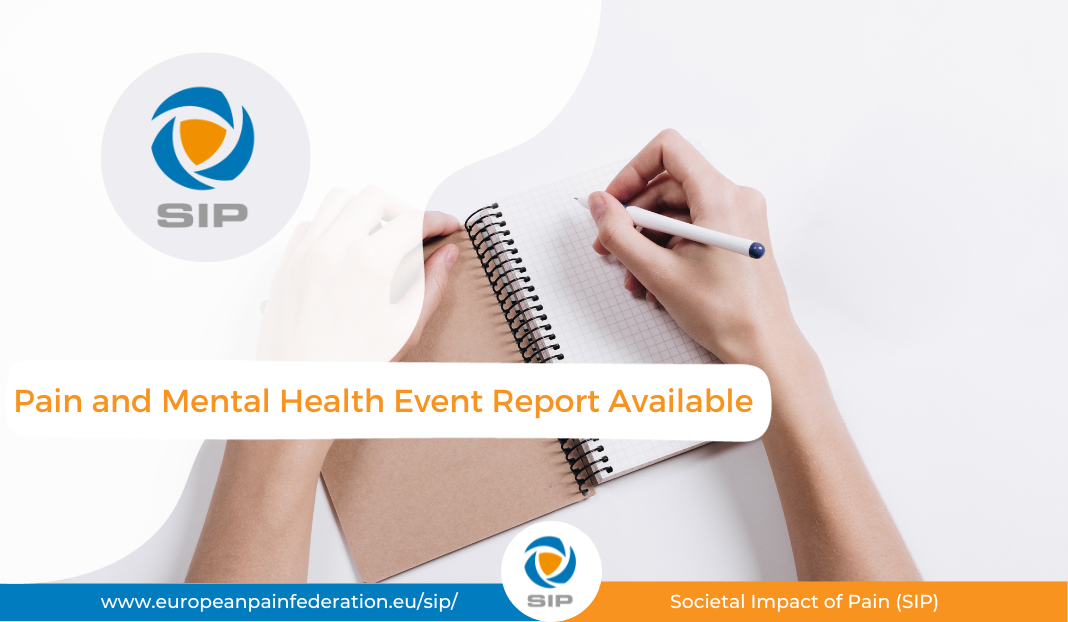Recognising and addressing pain in mental health settings and policies is essential to optimise meeting the needs of people with both pain and mental health conditions. Under the umbrella of the Societal Impact of Pain (SIP) Platform, a gathering of ten European professional and patient organisations developed a Joint Statement on the close link between pain and mental health. The nine recommendations call upon EU and national policy makers to ensure a range of aspects related to pain and mental health are acknowledged in health policy
On 10th October 2023, experts were invited to share their insights at a European Parliament event entitled “Pain and Mental Health: A Societal Impact of Pain (SIP) Event” hosted by MEP Marianne Vind and MEP Tomislav Sokol and attended by representatives from Pain Alliance Europe, the European Psychiatric Association, the European Federation of Neurological Associations, the Europe Region World Physiotherapy, the European Cancer Organisation and the Global Alliance of Mental Health Illness Advocacy Networks. During the event, experts explored the close relationship between pain and mental health, the quality of and access to safe pain management, the link between pain, mental health and employment, and how can all be integrated into mental health policies. Additionally, different EU Stakeholders shed a light on topics such as inclusion, inequalities, stigma, mental health and physical activity, and mental health in minority groups.
In Europe there are approximately 740 million people, most of whom experience an episode of severe pain at some point in their life. For approximately 20 percent, that pain persists for longer than three months and will be chronic pain. Therefore, at present, 150 million people are experiencing chronic pain across Europe, approximately equal to the population of France and Germany combined. Chronic pain is more prevalent in women than in men, with some estimates suggesting that women are twice as likely to experience chronic pain as men.
Mental health conditions and chronic pain frequently co-occur and influence each other, creating a vicious cycle of disability. Both pain and mental health conditions cause reduced quality of life, mobility and social participation across the lifespan. When treated in isolation, the treatment of mental health conditions is less successful if patients also have chronic pain, and the treatment of chronic pain is less successful if patients also have a mental health condition. Unfortunately, pain is not routinely assessed or addressed in people with mental health conditions. At the same time, mental health conditions like depression are often underrecognised and thus undertreated in people with chronic pain.
The Event Report is now available here!
